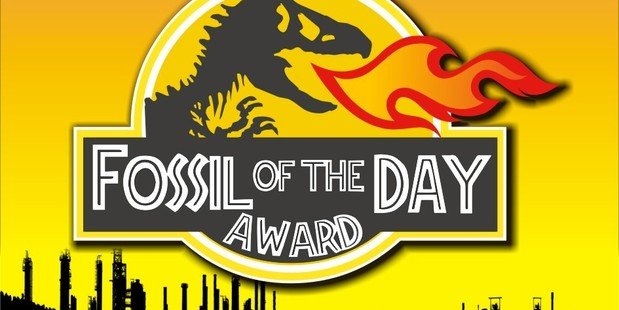
Not enough has changed in New Zealand over the last 10 years. We are missing a massive opportunity for leadership – just look at recent Paris Climate Talks, where John Key won us the first Fossil of the Day award from Climate Action Network International for “hilariously, or not, urging countries to phase out fossil fuel subsidies while shelling out big bucks to prop up fossil fuel production, to the tune of US$80 million”.

Image courtesy of thestandard.org.nz
Led by Government and large farmers, we have intensified farming to a point where New Zealand lakes and rivers are now literally swimming in pollution. The perils of farming this way have been talked about for years, but it seems little has been done to address this on a governmental level. At the same time the growing inequality around our food systems is shocking for a nation that grows so much good food. Of course, there are bright lights, like Taupo Beef, the supreme winner of the NZI Sustainable Business Network Awards, and food rescue organisation Kaibosh, which gives wasted food to communities in need. Then there is the Million Metres Streams Project which is using a crowdfunding approach to restoring our waterways.
Tourism remains a great opportunity but, as with our agriculture dilemma, we are not being systemic in our thinking. What is the carrying capacity of New Zealand? How do we ensure we build high quality experiences without destroying our natural capital? I haven’t seen enough collaborative thinking being led by Government, which is why the Sustainable Business Network has set up a small group of tourism operators working on how we might do this better. These guys are at the face of tourism and know what we can deliver well.
The same goes for our energy systems – including transport. And what we do with waste/refuse. These are issues the world is grappling with. A rethinking of these issues could drive our growth – using New Zealand’s creative sectors, our designs, our communities to rethink the current models. Get this right and we have a global solution for a world seeking answers.
We are a tremendously innovative nation and should be making our income from clever technology and solutions like that. We need a massive redesign of nearly everything. New Zealand could be leading the way in critical areas like renewable energy, mega efficiency (maximising resource use) and restoring food systems.
Ths rise of civil society
Over the next 10 years I see a growing shift coming from civil society and progressive business leaders (from large and small companies); people that are concerned about issues like inequality, the pressure on resources, and climate change. At the same time, local councils and community boards will have to develop local solutions for local communities. And like business they will need to collaborate – form coalitions of the willing – to create better ways of living on a planet with nine billion people.
Perhaps we will see great/positive non-violent civil actions, which challenge the status quo and cheekily move us into experiencing a better way of living. International examples include local “park and ride” community campaigns that encourage cycling without the permission of councils, and guerilla gardening, where locals utilise unused land to grow vegetables for their own communities.
The internet of things will massively improve the flow of data to make better decisions and better use existing resources. And smart innovation and re-design of existing systems will be part of the solution to address inequality – improving access to housing and food, for example.
Our model is stifling innovation
The main thing that keeps me awake at night is the lack of a ‘permissive’ environment. I meet so many fantastic, creative, potentially system-cracking people who could, given the right support, create more sustainable solutions that New Zealand can lead on – and benefit the globe and our economy. However we seem to be locked into a ‘do things the way we have always done them’ model, which stifles innovation. It doesn’t invest in the future or in new solutions, and says no before it says yes.
We need to adopt more risk for good. And put some financial support behind that risk. Get this right and the financial benefits are enormous.

*Rachel Brown’s commentary is part of “10 after 10”, an Idealog editorial series inspired by a challenge from PledgeMe CEO Anna Guenther, where we ask New Zealand business leaders – in particular female leaders – to comment on what has changed over the last 10 years, and what still needs to.




